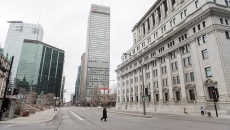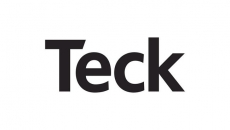The annual pace of inflation held steady in August as lower gasoline and air travel costs helped offset rising prices in other areas as businesses passed on costs related to operating during the pandemic.
Statistics Canada said Wednesday the consumer price index in August rose 0.1 per cent compared with a year ago, matching the 0.1 per cent year-over-year increase recorded in July.
The average economist estimate had been for a year-over-year increase of 0.4 per cent for August, according to financial markets data firm Refinitiv.
Gasoline prices were down 11.1 per cent compared with August 2019, following a 14.9 per cent decline recorded in July. Excluding gasoline from the inflation calculations, the consumer price index rose by 0.6 per cent in August, Statistics Canada said.
The monthly inflation report noted that air travel costs fell 16 per cent compared with August 2019, following a decline of 8.6 per cent in July as demand has fallen during the pandemic and airlines have offered discounts in response.
However, prices were up in other categories such as personal care services like haircuts, which had a year-over-year increase of 7.2 per cent.
Statistics Canada said the increased prices in the category could be attributed to businesses passing on additional costs related to safety measures needed to prevent the spread of COVID-19.
Royal Bank senior economist Nathan Janzen said consumer demand has held up better than expected over the summer, which has allowed for price growth in some categories as well as letting businesses pass on additional costs.
"The overarching question is how long can that last with unemployment still very high and the economy still running below capacity?"
The country has recouped about two-thirds of the three million jobs lost over March and April. The unemployment rate in August was 10.2 per cent.
A key pillar propping up spending has been government aid, including the Canada Emergency Response Benefit that has paid out over $76.4 billion to 8.75 million people since its introduction.
All that aid will mean that the pace of price growth until the end of the year won't be as slow as may be expected under the economic circumstances, Janzen said.
The CERB will start winding down at the end of the month, and the federal Liberals have promised a $37-billion replacement package of changes to employment insurance and a trio of benefits.
An analysis published Tuesday by the Canadian Centre for Policy Alternatives estimated 2.7 million people receiving CERB payments will receive less when the new system kicks in.
"Income supports are critical to individuals but, also, to our country’s economic stability and positioning for a recovery," the centre's senior economist, David Macdonald, wrote in his analysis.
"Consumer spending, largely due to the rapid roll out of the CERB, has been mostly responsible for keeping the economy afloat since March."
The Bank of Canada intends to keep its key policy interest rate at 0.25 per cent, which is as low as it will go, until inflation is back at the central bank's two per cent target.
The hope is that by keeping its rate low, the central bank can drive down rates on mortgages and loans to make it easier for people to borrow and spend to aid the economy as it recuperates from the COVID-19 crisis.
Experts suggest the Bank of Canada's key rate could stay where it is until late 2022 or even into 2023.
In August, the average of Canada's three measures for core inflation, which are considered better gauges of underlying price pressures and closely tracked by the Bank of Canada, was 1.7 per cent.
Regionally, prices rose the fastest in Prince Edward Island in August, where Statistics Canada said consumers paid more for cigarettes – which registered an annualized increase of 7.8 per cent – after the province instated a special tax in mid-July.






